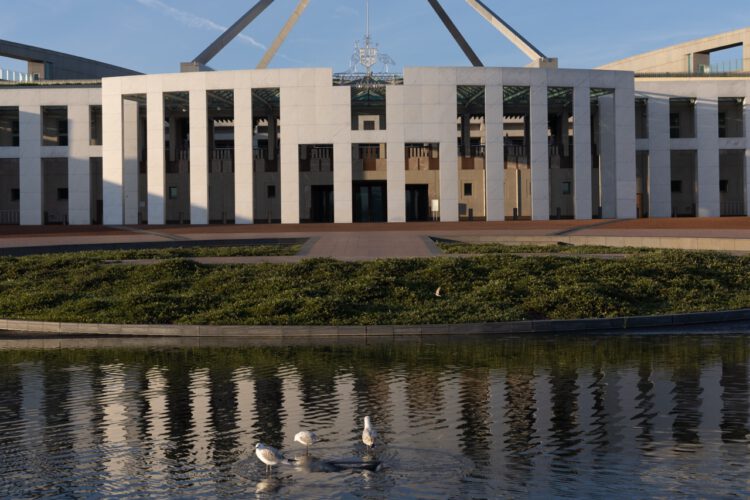After a dixer from Shayne Neumann, the Queensland Blair MP (the Coalition have this on their target list, but Labor think they will hold the seat) we get Sussan Ley who has taken to asking her questions in the same voice you interrogators overseeing torture use in the movies.
Does minister still support introduction of a Federal Environmental Protection Agency, including in Western Australia?
This question has been asked because WA in particular were very cranky with any sort of nature positive laws and WA Labor were pretty vocal in that. With a state election next month (which WA Labor will win, but there will be a swing back to the Liberals in a correction of the last election) and the federal election coming up (where WA seats will be very important for Labor in holding government/scraping by in minority) the Liberals are whirring up a nature positive scare campaign.
Tanya Plibersek:
I am so delighted to get this question from the Deputy Leader of the Opposition. She is one of the strongest advocates for environmental law reform, she in fact was… (Milton Dick has to call for order)
…The Deputy Leader of the Opposition was the Environment Minister for a time, many people don’t remember that but she was.
The Deputy Leader of the Opposition, when professor Graeme Samuel presented the previous government with his review of John Howard’s broken environmental laws that made a strong case that our laws did indeed need reforming.
(Sussan Ley raises a point of order which is not a point of order. Plibersek continues)
I will just go to the Deputy Leader of the Opposition’s exact quote in 2021 ‘The environment protection and biodiversity conservation act 1999 is 20 years old and needs modernising to ensure Australia can meet current and future environment and heritage protection challenges’.
We made very clear through our Nature Positive plan and through our laws that we wanted to see progress. Progress to deliver stronger protection for nature and progress to provide faster, clearer decisions for business. There is no business in the country that believes the environment laws are working to progress projects quickly and there is no environmental organisation or anyone with any common sense that thinks that our laws are working to protect nature effectively either.
Sadly, we took a very balanced package through the House of Representatives, we took it to the Senate, unfortunately, the Liberals and Nationals once again teamed up with the Greens political party to delay and to obfuscate and to refuse to make progress on our environmental law reforms which would have delivered a strong independent EPA, with strong new powers and penalties but would have also delivered faster, clearer decisions for business, based on greater regional planning, more transparency, more data and clearer decision-making processes.
Sadly, the Senate, we have at the moment, doesn’t allow us to progress every piece of legislation that we put to it and we have taken the legislation off the notice paper because we see that the deliberate delays and denial of those opposite teamed up with the Greens political party, means there was no path through in this parliament.

Loading form…